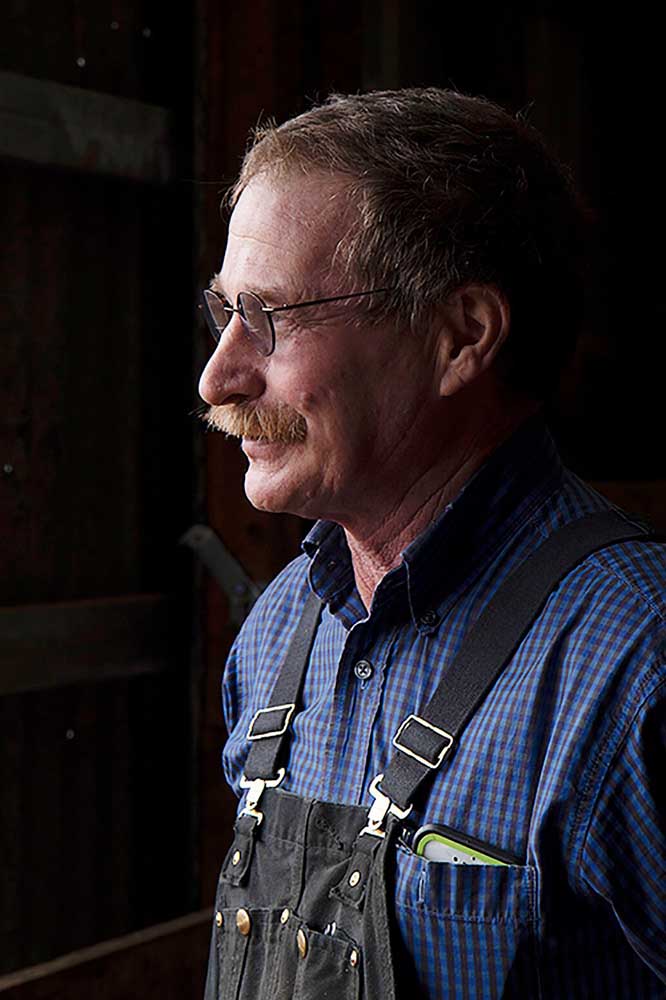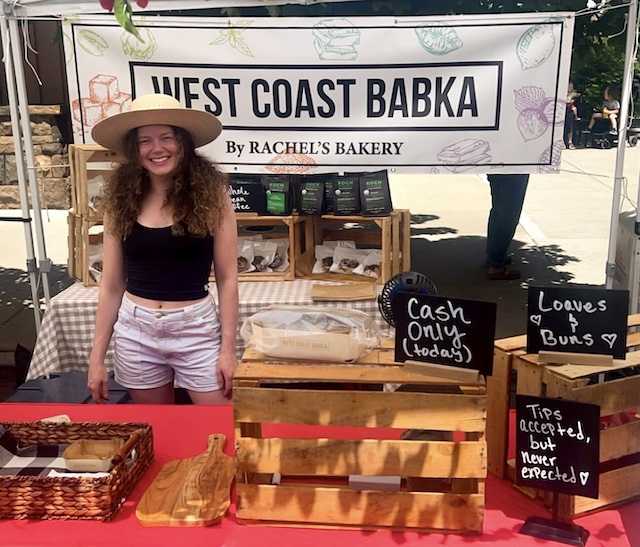‘FAMILY FARM’: Eastern Oregon operation gives the term a whole new meaning
Published 12:00 pm Saturday, May 7, 2022

- Glen Krebs
PENDLETON — Inside the Pendleton Woolen Mills retail store, shoppers oohed and aahed while fingering vibrantly colored clothing and blankets.
“I love people’s reactions. That’s the most gratifying thing about this work,” said John Bishop, president of Pendleton Woolen Mills.
In the adjoining mill — run by generations of the same family since 1909 — skilled artisans worked alongside roaring machinery. Wool was carded, aligned into roving, wound onto spools, stretched and twisted into yarn on spinning frames and sent to looms to be woven into cloth.
Some of this wool came from the Cunningham Sheep Co., one of Oregon’s largest and oldest family-run farms, with thousands of sheep plus cattle, timber, wheat and hunting grounds.
Those familiar with the farm say its success was built on more than just land and capital; it was also forged through five generations of family members, each contributing to the farm in different ways through a highly orchestrated business structure.
“We are truly a family ranch with almost a 100-year history in the same family, and to me, that’s the most important thing, not so much how much sagebrush we’ve got,” said Steve Corey, 75, himself a member of the family farm.
Corey, former longtime chair and secretary-treasurer of the farm’s board, acted as spokesman for the family business and gave the Capital Press a tour of the farm.
Five generations
According to family records, the sheep business was founded by Charles Cunningham in 1873.
In 1933, Mac Hoke and his business partner, Don Cameron, acquired it. Cameron later sold to Hoke’s family, in whose hands the farm has remained ever since.
Hoke and his wife, Carrie, the first generation, had two daughters: Joan and Helen, the second generation.
Joan married a Corey and Helen married a Levy.
Joan Hoke Corey had three children and Helen Hoke Levy had six — the third generation.
In the fourth generation, there are six Coreys and 17 Levys.
The fifth generation is comprised of around 30 children.
About 75% of the family has stayed in Eastern Oregon, and most family members — including the children — spend some time on the farm.
Everyone has a voice
Industry leaders and community members say the farm’s success is partly attributable to its structure, which strategically incorporates generations of family members.
Direct lineal descendants inherit interest in the company, but non-owners also play a role.
The family has two entities that contribute to the business: a family board and a family council.
The board includes eight family members and one independent director. Board members vote on business decisions. The current board has seven fourth-generation family members and one third-generation member.
The family council is separate, existing to give everyone a voice. Spouses of lineal descendants are allowed to participate. Although council members don’t get to vote on business decisions, the council keeps the family connected and is a “breeding ground for ideas,” Steve Corey said.
On some family farms, only those who actually work the ground get an ownership stake and a say in how the farm is run, but that’s not the case with Cunningham Sheep Co.
Some family members have chosen farm life, including Dick Levy, who manages cattle, and Bob Levy, who oversees sheep. Others have chosen off-farm occupations, including Steve Corey, who worked in the farm’s wheat fields when he was young, studied history at Yale University and law at Stanford University, then returned to practice as an attorney in Eastern Oregon.
Both categories — those in full-time farming and those with off-farm careers — participate in the family board and council, contributing their skills and knowledge to the farm.
Sharing responsibility between family members has kept the business in its best shape, said Corey, though it has demanded “a great deal of coordination and communication.”
‘Wool was king’
Early in the farm’s history, Cunningham Sheep Co. had about 25,000 sheep, and the farm has a long history of selling its wool exclusively to Pendleton Woolen Mills.
“Back then, wool was king,” said Glen Krebs, the farm’s lead sheep herder.
As markets changed through the decades, Cunningham Sheep Co. whittled down its flock — the farm now keeps about 4,000 ewes, plus rams and lambs — and expanded into other commodities.
In the 1960s, the family added cattle and now raises 1,200 cow-calf pairs annually. The family also diversified by adding wheat, timberland and a hunting operation called Hunt Oregon LLC.
Since the 1950s, the farm has increased its acreage by 60% to 80%.
Corey estimated the farm is larger than 75,000 acres.
Although the farm now produces a diverse mix of livestock, wheat and timber, many locals still know Cunningham Sheep Co. best for what gave the farm its name: sheep.
Fine-wooled Rambouillets
Wool remains a major part of the farm 149 years after Cunningham started the business.
The Coreys and Levys raise Rambouillet sheep, a large, white-faced breed that produces fine wool soft enough to be worn next to the skin.
“Shearing is a busy time,” said Glen Krebs, lead sheep herder.
Krebs ascended a ramp to the upper story of a barn lined with shearing stations.
Annually, he said, the farm pays a shearing contractor to bring in several shearers.
Shearing is fast-paced. Shorn sheep are guided down chutes resembling slides at a park, while handlers classify the wool’s quality before it’s mechanically stuffed into bags.
When Krebs was growing up, his family stuffed round burlap bags, often 7 1/2 feet tall, with wool manually rather than mechanically.
“When I was little, they’d throw me in a bag and I’d have to work my way out,” said Krebs.
Krebs is not part of either the Levy or Corey side. The family hired him because he has a lifetime of industry knowledge; Krebs’ family also runs an Eastern Oregon sheep business.
The farm hired Krebs in 2013 after their former Basque lead sheep herder, Juan Erice, retired.
Krebs keeps track of each animal’s pedigree with electronic ear tags, which the farm started using four years ago. He said the tags provide him with data for targeted breeding.
Plus, Krebs said, he anticipates the meat market is moving toward consumers demanding more traceability — tracking with ear tags which animals have received antibiotics, for example.
“Traceability is coming,” said Krebs. “We’re trying to get ahead.”The sheep business’ main profit comes from selling lamb through Stan Boyd, based in Eagle, Idaho, the farm’s broker for the Rocky Mountain Sheep Marketing Association.
Krebs said he’s pleased that demand for lamb is on the rise.
Main challenges {span class=”print_trim”}
Predator pressure is one of the main challenges the farm faces.
Last year alone, the farm had 17 confirmed sheep kills and two dog injuries from wolves. Those were just the confirmed cases. According to Corey, “It’s tough to get a wolf predation confirmed.”
The family says the farm is affected by the state’s decisions on wolf management.
“It’s not us making those rules. We just live and deal with them as best as we can,” said Corey.
To repel wolves, the farm has increased its number of guard dogs.
Krebs, the foreman, said the dogs take different roles. Some chase. Others bark. Yet others remain close to the sheep. Krebs said he doesn’t assign the dogs their roles; they decide.
“It’s like they have a coffee every morning and say, ‘You go here, I’ll go there,’” said Krebs.
The farm faces other challenges, too: the economy’s unpredictability, environmental regulations, the ongoing agricultural labor shortage and concern over the new farmworker overtime pay law.
Despite the challenges, Krebs said he’s fortunate to have a team of about six H-2A migrant guest workers who follow the sheep on the range.
“We’ve got a terrific team, couldn’t have better,” said Krebs. “They’re just go-getters.”
{/span}
Lambing barnThe next morning,
Corey, Krebs, the herders and a veterinary student met at the lambing barn in Nolin, between Pendleton and Echo. This spring, Cunningham Sheep Co. birthed between 4,500 to 4,800 lambs out of 3,800 ewes — a good rate considering the breed and last year’s drought.
Inside the barn, Leah Swannack, a Washington State University veterinary student doing a mixed-animal rotation at the farm, was moving between jugs — stalls holding a single ewe and her young — checking their health.
The Coreys and Levys say they’re intentional about surrounding themselves with good veterinarians.
While Swannack did health checks, migrant workers labeled ewes and lambs with colored chalk-paint: blue for singles, red for twins. The farm also uses letters with different meanings: for example, “A” for “ayuda,” Spanish for “help,” painted on a lamb needing attention.
Even bummer lambs have their own warm, clean space with individual pens. Krebs jokingly calls this “The Hilton.”
With such a large operation, it’s crucial to be organized, he said.
The future
With younger faces on the family board and council, Corey said he looks forward to seeing how the farm innovates in the future.
Younger family members have bounced around ideas that may take shape, including harvesting more of the farm’s timber, acquiring a small lumber mill and buying more land to expand pheasant hunting. Young family members have also talked about marketing lamb differently, with more direct sales under a brand name such as “Cunningham Lamb.”
At this point, those ideas are still just that: ideas. But as new generations of the family take leadership, Corey anticipates the farm will adapt with the times.
In the meantime, consumers continue to see the farm’s ripple effects far and wide: at the grocery store, on the landscape and woven into cloth in Pendleton Woolen Mills’ 35 retail stores.






